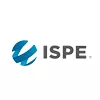2021 ISPE Aseptic Conference Kicks Off With a Look Back & Ahead

The past, present, and future were featured in the Opening Plenary Session at the 2021 ISPE Aseptic Conference. A record number of attendees at the virtual conference hear remembrances of the 30 years of the conference, as well as a look at the present and evolving future of risk reduction, reliability, and sustainability and the state of public-private partnership for pandemic preparedness and response. The future was represented by a report on the latest activities of the ISPE Foundation, in particular its commitment to broadening its service to building the Workforce of the Future.
The conference was opened by Tom Hartman, ISPE CEO and President, who noted that this is the first ISPE conference in 2021 and that attendees from over 26 countries were participating. He celebrated the 30th anniversary of the conference as a testament to the information presented each year in the very important areas of aseptic processing and drug production. He thanked the conference committee, presenters, regulators, and ISPE staff for their roles in the success of this event.
A Look Back

Jörg Zimmermann, Vice President, Vetter Development Service, External Affairs, Vetter Pharma-Fertigung GmbH & Co. KG and Conference Chair, celebrated the 30th anniversary of the Aseptic Conference with a look through its history. He noted that the conference used to be two separate conferences: The Barrier-Isolator Conference, in Washington, DC in June, and the Aseptic Processing Conference in February in Tampa. In 2012, the two conferences were combined into the Aseptic Conference.
Through the years, the conference has been shaping the industry, Zimmermann said, with the early contributions of such notables as Jack Lysfjord, Hite Baker, Manmohan Sihra, and Michael Porter. Hundreds of speakers and thousands of participants have presented and hear presentations on groundbreaking developments, and controversial ones as well. Zimmermann noted the important role regulators have played in presenting and interacting at the conferences, including the US FDA’s Rick Friedman, Bob Sausville, Thomas Arista, Andrew Hopkins, Alonza Cruse, Brooke Higgins, and many others.
He thanked this year’s program committee for their work on the anniversary conference.
Program Committee
He also applauded the work of ISPE staffer Marianne Bock for the continued success of the program.
Highlights from past and Recent Aseptic Conferences
Modernizing Manufacturing
Rick Friedman, Deputy Director, Office of Manufacturing Quality, CDER/FDA, presented on “Risk Reduction, Reliability, and Sustainability: The Drivers for Modernization of Sterile Manufacturing.”
He noted the importance of quality risk management (QRM) and ICH Q9, observing that in about 15 years, the focus has been largely upon product risks. Challenges continue with facility and equipment risks, which are areas for improvement.
In microbiological contamination risk, he raised questions related to managing risks from manual interventions including balancing retraining of operators with operational design improvements. He touched upon the broader challenge of human contact in aseptic manufacturing, revisiting findings from BioPhorum Operations Group on how to improve operational performance and considerations of human error, a symptom rather than a cause of systems issues. He discussed several case studies of specific issues including needle puncture, single-use systems, and depth of stopper insertion.
Friedman noted that robotics provide a “critical modernization opportunity,” with potential to “profoundly” reduce contamination risks. Design still matters and equipment must be suitable for its intended use. Following aseptic method principles, validation, maintenance and calibration, etc. are all important as well.
Finally, he talked about the importance of modernizing older facilities, since this can reduce manual interventions often needed because of mechanical problems as well as reduce opportunities for contamination.
Pandemic Preparedness
Jean Hu-Primmer, Global Regulatory Lead, GSK Vaccines, presented on “Public-Private Partnership for Pandemic Preparedness and Response.” She reviewed the foundation of pandemic preparedness and response in a public health emergency (PHE), including medical countermeasure manufacturing, accelerating development, and mitigating risk. During PHEs, she noted, systems and processes must be ready before needed.
The current unprecedented pandemic with high death rates and economic losses has seen action by global groups of public and private partnerships that were previously established since the late 1990s to address PHE risks. She outlined these groups and their involvement and support of the rapid vaccine development work that occurred last year and continues into this year to address COVID-19: US Public Health Emergency Medical Countermeasures Enterprise (PHEMC); COVID-19 Medical Countermeasures Task Force; Coalition for Epidemic Preparedness Innovations; and Access to COVID-19 Tools (ACT) Accelerator (COVAX: vaccine pillar of the ACT Accelerator).
The interaction of these global resources supported the unprecedented development of COVID-19 vaccines with compressed development timeline to reach EUA and BLA filings. Advanced procurement contracts were set, which share the burdens of development costs, warm-bases commercial manufacturing, and incentivizes the risk of production. She emphasized that EUAs are not shortcuts to licensure and that all other standards still apply to these vaccines. The EUA is simply an access mechanism, she noted; it is vitally important that all companies producing vaccines or other products related to the COVID-19 pandemic continue to approve approval and licensure for their products.
ISPE Foundation Update
Antonio Moreira, PhD, Vice Provost, Academic Affairs, University of Maryland, Baltimore County, and Chair of the ISPE Foundation Board, and Joydeep Ganguly, Senior Vice President, Corporate Operations, Gilead Sciences, provided updates on the ISPE Foundation, including a new diversity internship program supporting diversity.
Moreira noted that the foundation launched about three years ago, and the mission is to support “education, training, and research for the advancement of the innovative technologies and provides solutions to global challenges in the development, manufacture, and supply of quality pharmaceutical products for the benefit of patients around the world.”
A number of Foundation initiatives are being developed; he shared information about one that has been launched this year with Gilead Sciences for an internship program that supports diversity in the workforce.

Ganguly said that he was proud to be associated with the Foundation and its work. “You can’t talk about the Workforce of the Future without addressing a fundamental lack of diversity affecting some sectors of the industry,” he noted, and Gilead is hoping to make meaningful strides.
Interns who applied to the Gilead internship were screened by the Foundation and finalists were provided to Gilead to interview and assess. Two interns from underrepresented sectors are being selected for the program. The goal of the program is to attract, develop, and retain operations talent in the industry, as well as creating a framework and ecosystem to address disparities. The first interns will work on two initiatives this summer, Ganguly said: sustainability, and operationalizing some Industry 4.0 objectives related to going paperless in some key areas of the operation. He noted that this program is a great way for companies to get involved and engaged.
Moreira concluded that “People will be the ones to make the difference in our industry. A diverse workforce will be able to make gains and achieve the dream.”
Disclaimer: This is an abridged, unofficial summary of an FDA regulator’s presentation at a conference that has not been reviewed or vetted by the agency. The summary is an informal and brief synopsis of the regulator’s presentation and this information does not represent official guidance or policy of the FDA.
















